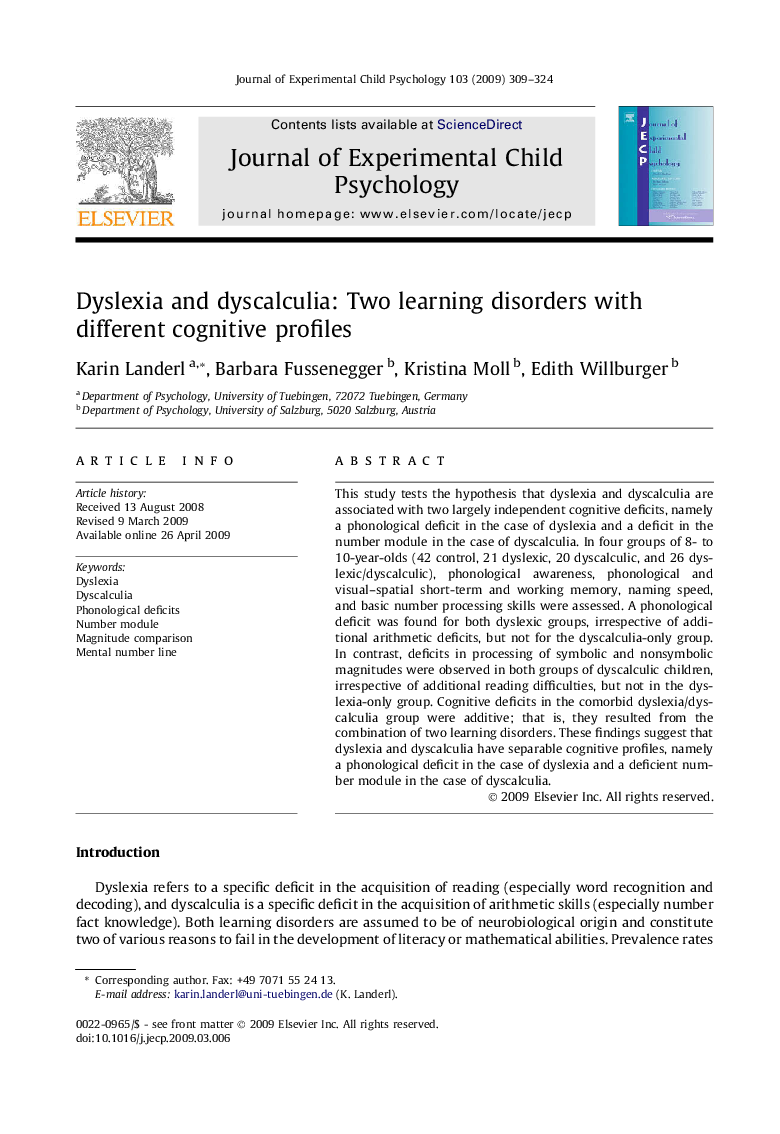| Article ID | Journal | Published Year | Pages | File Type |
|---|---|---|---|---|
| 918594 | Journal of Experimental Child Psychology | 2009 | 16 Pages |
This study tests the hypothesis that dyslexia and dyscalculia are associated with two largely independent cognitive deficits, namely a phonological deficit in the case of dyslexia and a deficit in the number module in the case of dyscalculia. In four groups of 8- to 10-year-olds (42 control, 21 dyslexic, 20 dyscalculic, and 26 dyslexic/dyscalculic), phonological awareness, phonological and visual–spatial short-term and working memory, naming speed, and basic number processing skills were assessed. A phonological deficit was found for both dyslexic groups, irrespective of additional arithmetic deficits, but not for the dyscalculia-only group. In contrast, deficits in processing of symbolic and nonsymbolic magnitudes were observed in both groups of dyscalculic children, irrespective of additional reading difficulties, but not in the dyslexia-only group. Cognitive deficits in the comorbid dyslexia/dyscalculia group were additive; that is, they resulted from the combination of two learning disorders. These findings suggest that dyslexia and dyscalculia have separable cognitive profiles, namely a phonological deficit in the case of dyslexia and a deficient number module in the case of dyscalculia.
